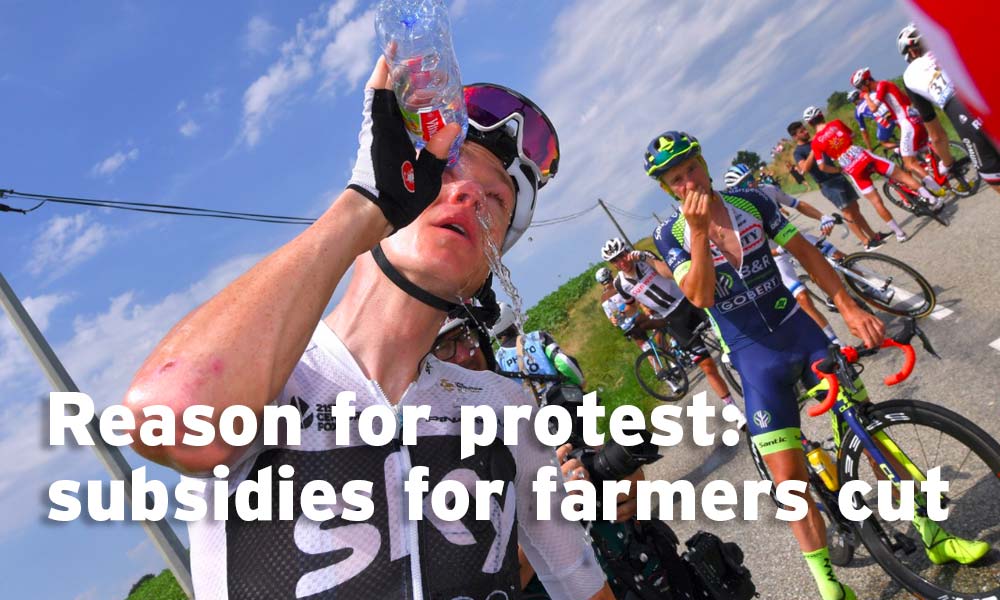[et_pb_section bb_built=”1″ admin_label=”section”][et_pb_row admin_label=”row”][et_pb_column type=”1_4″][et_pb_text use_border_color=”off” border_color=”#ffffff” border_style=”solid” _builder_version=”3.9″]
The protest early in stage 16 has attracted attention because of the action required to get the peloton back on the road. But some have asked what the farmers were protesting about… here is a brief summary.
[/et_pb_text][/et_pb_column][et_pb_column type=”3_4″][et_pb_text use_border_color=”off” border_color=”#ffffff” border_style=”solid” _builder_version=”3.9″]
If you drive – or ride – around the Pyrenees, you’ll often see signs stating “non à l’ours” – no bears. That’s the sentiment that is often express by farmers in the mountain massif. They don’t like the animals. They want them eradicated from the region. And they don’t mind expressing that with both graffiti and, on occasion, with protests.
But the demonstration early in stage 16 has nothing to do with this common theme of protests in the south of France.
Rather, the issue that prompted some to block the road of the Tour de France on the final Tuesday of the 2018 race relates to funding cuts to farm subsidies by the European Commission.
There has been a recent rezoning of regions and La Piege has, apparently, been quite severely affected. And therefore the farmers decided to draw attention to their plight by… well, by stopping a bike race – of course.
It’s not a new concept; the Tour’s is often brought to a halt by protests but usually there is a period of confrontation, or simply negotiation, and the riders begin the race again. Today, however, things got a little more heated and it is being reported that police have used pepper spray to get the protesters out of the way.
[/et_pb_text][/et_pb_column][/et_pb_row][/et_pb_section]



